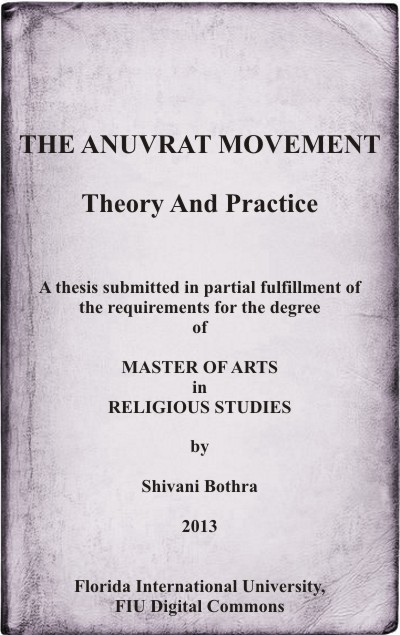Vow Six:
I will observe rectitude in business and general behavior. I will not harm others in order to serve any ends and I will not practice deceit.
Like the fourth and fifth vows, the sixth vow combines the categories of ahimsa satya, and also hem in aparigraha (non-possession). The sixth vow is meant to restrain people from employing unethical, immoral means to maximize profit. My informants understood righteousness in business as Tulsi's predominant concern. Hence, keeping thebusiness community in mind an individual who embodied this vow would not tradestolen merchandise, use false weights and measures, adulterate or substitute theirproducts with inferior quality commodities, fail to pay the required taxes, or take bribes.
A number of informants quoted the example of a very famous, late Terapanthi lay businessman, Sumer Mal Dugar. I was told that Acharya Tulsi himself quoted Dugar's example to motivate the business community. I am recounting the following description about him from the book titled, Ajaatshatru Ki Jeevan Gatha:
On October 20, 1969, Sumermal Dugar was awarded the title of Pramanik Shravak[99] for his exemplary practices of keeping up with the Anuvrat vows. His example glorified the Anuvrat Movement. He and his family had been practicing Anuvratis. They did not purchase anything from the black market, did not hoard consumables, and did not steal electricity from the government supply, followed righteous behavior in business and trading activity. He declared all his possessions of silver and gold to the government in order to pay full taxes.[100]
It makes some sense to understand why many of my respondents recalled this example.However, from the date mentioned in the above quotation, it is likely possible that thisbusinessman was already practicing traditional Anuvrat vows. The question remains whatabout the later generation business community? How does Tulsi's movement influencethem? I did not come across many such examples, old or new, during my research. Itseems the business community may be reluctant in accepting Tulsi's vows.
Expressing concerns over the business community, one nun responded: "The main obstacle faced by the business community is the present bureaucratic system, as they cannot get their work done smoothly without giving bribes."[101] The issue of bribery is dealt with detail in the following chapter. The spectrum and scope of business in the present time has changed. I would think that advertising would also be a concern for businessmen jewelers, for instance, wants women to desire jewels, and so advertise that they make women look beautiful and show that they are loved and desirable. Advertisements support consumerism in all areas (cars, houses, jewelry, etc). However, they are also part of "just doing business." How can a businessman live and still keep the spirit of the vows? In addition to these issues, concerns arising from the growing number of industries and the issues of unfair treatment of laborers also need to be addressed by the Anuvrati. Such questions imply that the vows are not sufficiently targeted to the present problems.
 Shivani Bothra
Shivani Bothra
